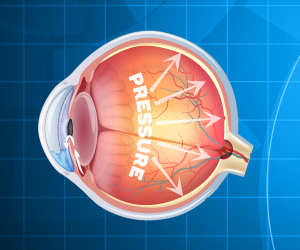Circulating cell-free DNA (cfDNA) analysis offers a non-invasive way to identify lung cancer, even at early stages, through DNA fragments in the bloodstream.
- cfDNA analysis can detect early-stage lung cancer with high accuracy through non-invasive blood tests
- The ESim-seq model shows 76.5% sensitivity in identifying early-stage lung cancer, offering hope for better survival rates
- cfDNA screening could reduce the need for invasive procedures, complementing traditional methods like Low-Dose Computed Tomography (LDCT)
Evaluation and integration of cell-free DNA signatures for detection of lung cancer
Go to source).
Circulating Cell-Free DNA (CfDNA) from dying cells in your body can carry cancer markers- helping doctors detect lung cancer early with just a simple blood test! #lungcancer #cfdna #earlydetection #medindia’
What Is cfDNA?
Circulating cell-free DNA (cfDNA) refers to small fragments of DNA released from dying cells into the bloodstream. In healthy individuals, cfDNA primarily comes from regular cell turnover, but in cancer patients, the cfDNA can carry tumor-specific markers. By analyzing cfDNA, scientists can detect subtle changes in DNA that signal the presence of cancer- without requiring invasive tissue biopsies.ESim-seq Model: A Breakthrough in Lung Cancer Detection
A new study has leveraged cfDNA to create a cutting-edge diagnostic tool for early lung cancer detection: the ESim-seq model (Early Screening tech with Integrated Model). Researchers collected blood samples from 926 lung cancer patients and 611 healthy individuals, followed by cfDNA extraction. They then conducted two types of sequencing: low-pass whole genome sequencing (LP-WGS) and targeted methylation sequencing (TMS).By examining various features of cfDNA- including DNA fragmentation patterns and methylation marks- they developed a customized algorithm to build the ESim-seq model. This model was tested on an independent group of patients and achieved impressive results, with an area under the curve (AUC) score of 0.948, which indicates strong predictive power. The model also had a sensitivity of 79.3% across all stages of lung cancer and a specificity of 96.0%, meaning it could accurately distinguish lung cancer patients from healthy individuals.
cfDNA: A Multi-Stage Cancer Detector
The ESim-seq model was especially effective at detecting early-stage lung cancer- a crucial step in reducing mortality rates. For stage I lung cancer patients, the sensitivity of the model was 76.5%, meaning it successfully identified over three-quarters of early-stage cases. As cancer progressed, the sensitivity increased: 100% for stages II and III, and 87.5% for stage IV. These results demonstrate that cfDNA analysis can be a powerful tool for detecting lung cancer at its most curable stages.Distinguishing Lung Cancer Types with Lung Cancer Subtype Classification
In addition to detecting lung cancer, the study developed another model, LCSC (Lung Cancer Subtype multiple Classification), which can differentiate between different types of lung cancer. This distinction is critical for guiding treatment decisions. The LCSC model achieved an AUC score of 0.961, showing it could accurately classify patients with either small cell lung cancer (SCLC) or non-small cell lung cancer (NSCLC).Why cfDNA Matters in Early Detection
Current lung cancer screening methods, like LDCT, often lead to high false-positive rates, meaning patients may undergo unnecessary, invasive procedures. cfDNA analysis offers a promising solution by providing highly accurate results with a simple blood test. By combining different features of cfDNA, including fragmentation and methylation patterns, researchers have created a tool that could work alongside LDCT, increasing overall screening accuracy and reducing the need for invasive follow-up procedures.Future of Lung Cancer Screening
The ESim-seq and LCSC models represent exciting advancements in lung cancer detection. By leveraging the power of cfDNA, researchers have developed non-invasive tests that can detect lung cancer at its earliest stages, potentially saving lives through earlier intervention. These models also highlight the potential for cfDNA to complement existing screening methods, offering a more comprehensive approach to lung cancer diagnosis.As research continues, cfDNA analysis could become a standard tool in the fight against lung cancer, helping doctors catch the disease before it progresses and increasing survival rates. The present study provides a strong foundation for future work, paving the way for even more accurate and accessible lung cancer screening methods in the years to come.
Reference:
- Evaluation and integration of cell-free DNA signatures for detection of lung cancer - (https://www.sciencedirect.com/science/article/abs/pii/S0304383524006116?via%3Dihub)
Source-Medindia
















